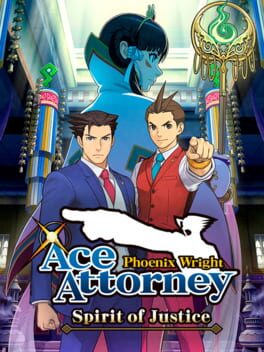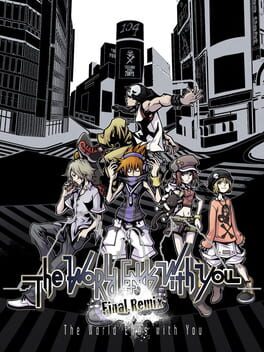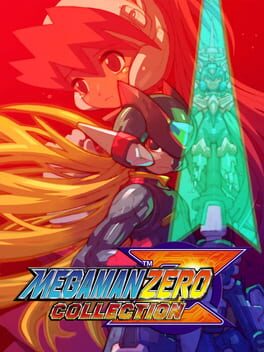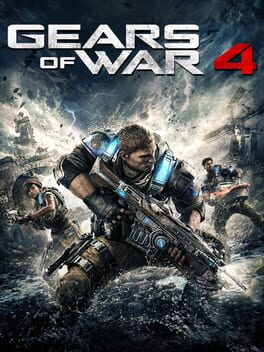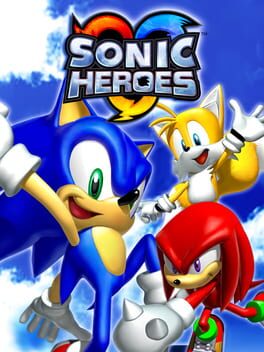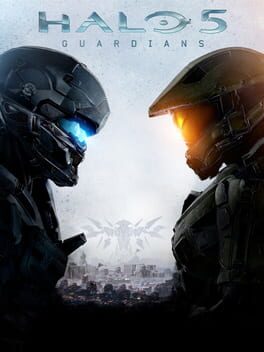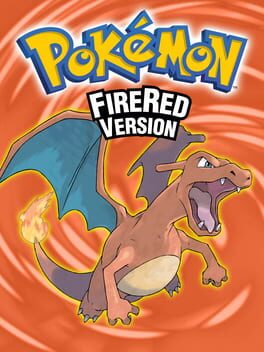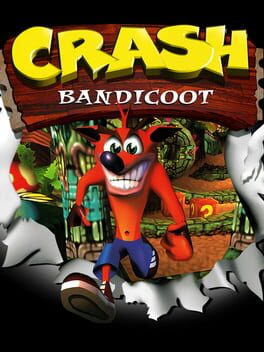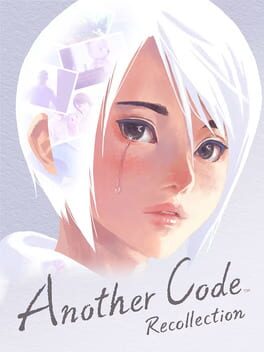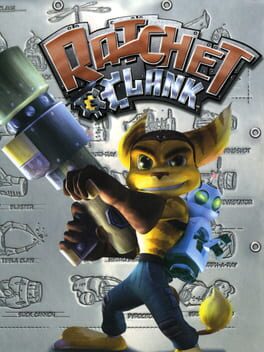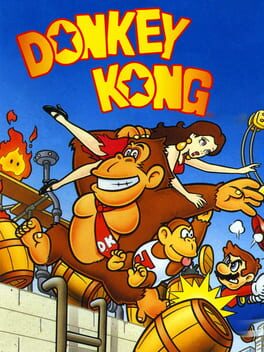MelMellon
Hi I'm Mel !!!! I like talking about games
Go to Lists -> Folder for Reviews -> "Games I've Reviewed" to see my full-length reviews
If we're in a server together and you got here from my Status, feel free to hmu to talk about games! I love talking about their history nd their design and such.
~|~|~|~|~|~|~|~|~|~|~ LISTS GUIDE ~|~|~|~|~|~|~|~|~|~|~
PLAYED: Games I've "started" on any level
BACKLOGGED: Own, but not played
PLAYING: Trying to play regularly
WISHLIST: Mostly for physical games I want
HIGH PRIORITY: The games I REALLY want to play
LOW PRIORITY: The games I only kinda wanna play
NO: The games I don't know why I own
GAMES I'VE REVIEWED: All the games here are ones I've written proper reviews for
GAMES-TO-REVIEW: Self explanatory, feel free to give suggestions in the List comments.
"PHYSICAL" LISTS: Games I own physically
"Z" LISTS: Just digital-only games
Discord: Melcord
Badges

Gone Gold
Received 5+ likes on a review while featured on the front page

GOTY '23
Participated in the 2023 Game of the Year Event

Famous
Gained 100+ followers

Pinged
Mentioned by another user

Organized
Created a list folder with 5+ lists

GOTY '22
Participated in the 2022 Game of the Year Event

Adored
Gained 300+ total review likes

Trend Setter
Gained 50+ followers

On Schedule
Journaled games once a day for a week straight

2 Years of Service
Being part of the Backloggd community for 2 years

Listed
Created 10+ public lists

Donor
Liked 50+ reviews / lists

Roadtrip
Voted for at least 3 features on the roadmap

Shreked
Found the secret ogre page

Best Friends
Become mutual friends with at least 3 others

GOTY '21
Participated in the 2021 Game of the Year Event

Loved
Gained 100+ total review likes

Well Written
Gained 10+ likes on a single review

Popular
Gained 15+ followers

Gamer
Played 250+ games

Noticed
Gained 3+ followers

N00b
Played 100+ games

Liked
Gained 10+ total review likes
Favorite Games
393
Total Games Played
008
Played in 2024
258
Games Backloggd
Recently Played See More
Recently Reviewed See More
I try, with any game I play, to understand the objective and intent of the designers and artists behind the game during my time playing it - to reach a sort of agreement upon which to draw my analysis. This is part of why platformers are some of my all-time favorite games - their intent is usually immediately understandable as soon as you're given control. Mario is a toybox - games with a character able to do many things, with levels often made purely around the lowest common denominator, yet with a moveset sparkling with potential for freedom of expression. Sonic is a training ground - a set of mechanics that oft feel unwiedly and difficult to use properly, yet one with boundless potential for faster, yet faster times, with a ranking system always at the ready to push you to your absolute limits. Donkey Kong and Crash are an obstacle course - characters with dead-simple mechanics placed in contexts that ask the utmost of your capabilities as a player, of your mastery of every little interaction between the character and their world, with bountiful rewards given to those who can go the extra mile. Yet in my time demoing the original Spyro the Dragon, this sort of distillation felt damn near impossible to get done. Spyro could move fast, yet his levels lacked incentive to utilize it to its fullest. He could breathe fire, jump and glide, yet there's rarely more asked of you to do than those basic actions in isolation. And as I was playing, trying to think of yet one more think to note down...the level I was in had already ended.
And that's when it clicked for me - the secret ingredient.
The absolute greatest achievement of Ratchet & Clank, beyond its distinct art design, immaculate music, charming character writing and thematic core, is that a fast, steady pace is prioritized above all else. Ratchet & Clank, much like its dragonic ancenstor, doesn't truly push the envelope in any one particular area of its gameplay - its gunplay is simple, its jumps and platforming are not much more than fit-for-purpose, and its mobility is never one to truly let the player run freely about. Yet none of what Ratchet & Clank tasks its players with accomplishing ever takes long enough to where one would begin longing for more. Enemies can be defeated as quickly as they appear, and their deaths are punctuated with the oh-so-satisfying sounds of bolts - hard cash in the Ratchetverse - whizzing into the lombax's pockets. Atop every hill lays a new visually distinct, breathtaking vista - and after just four or five of those, you've circled back to your ship, seen a funny cutscene with entertaining dialogue, and gotten a new weapon or mobility upgrade. Particularly with the weapons, there's always something to draw your attention - "maybe I could try the Visibomb here?" "These enemies are all bunched together, maybe the Walloper would be funny to use here?" "Ooh, if I use the Mine Glove and then Taunter, I can draw enemies into the mines!" It's not so much that these creative options for combat are required nor rewarding to solve, but that it all adds to the feeling of the game always having stimulus of some sort at the ready.
It's easy to liken its constant sense of progression to a Metroidvania or RPG, but it althesame feels immensely befitting of the narrative the original Ratchet & Clank tells. The duo are an odd pair in this one, going from somewhat neutral on one another to bickering to becoming more genuinely trusting of one another, yet the everpresent constant that drives the dynamic is Ratchet's own hot-headedness, not in any way moronic yet always leading thoughts with the trigger rather than the brain. The easy comparison to make here would be toward Sonic the Hedgehog, yet for as much of a go-getter as he is, I've always had the impression that he's fully capable and willing to slow down and assess situations inbetween sprints: he's never been restrained in his life and knows when its okay to take it slow. Ratchet, meanwhile, is excited to finally be off his home, finally getting to see the world and let it guide his ship on his first real adventure - he never stops to chat or befriend anyone for longer than what's needed. It feels like a reflection of the game's own pace and structure, as if the environments we explore aren't necessarily seen in their entirety, but only in the pieces that Ratchet himself is willing to go through before being ready to hop off to the next fun world. The persona of a determined delinquent scrapyard mechanic also obviously lends itself further to the combat, as it never stops feeling exciting to mow down fools with the arsenal at your disposal.
If Ratchet is emblematic of the sheer sense of tempo, aggression and power given to the player throughout the game, then I suppose Clank represents the opposite aspects - the details that are easily missed, almost asking one to slow down to be fully appreciated. The absolute scale, atmosphere and visual detail of a world like Metropolis, the effects and animations of every gun and enemy, the differing architecture and sense of culture from planet to planet...though its a world that you can easily and quite enjoyably breeze through, its also one that doesn't shy away from letting the player smell the roses at their own leisure. I feel like this balance seeps into upholding just about every part of the game - the cutscenes are both funny because of the snappy and outright excellent dialogue, yet watching attentively can alert the player to so many little intricacies of how the universe and its people operate. How much a character like Captain Qwark says about the status, importance and exploitation of celebrities, how full-scale warfare sort of just happens in the background in several of the game's planets without any true sense of panic or surprise expressed by its inhabitants - as if its just part of their everyday lives to expect the world to turn upside down at the whims of their rulers. And crucially how, despite being a mechanic and a rebel in spirit, Ratchet remains subservient to a capitalist system - his collected scrap isn't material to craft weapons on his own accord, but currency for purchasing weapons as goods. Like your average punk-rock song, Ratchet & Clank knows, criticizes and shouts about the system that's restraining them, yet relishes in that rebelliousness as an aesthetic moreso than committing to serious discussion on the topics raised. It has important things to say and messages to be dissected by its players, yet the aforementioned Ratchet half of the game sees to ensures that such discussion never bogs down the game's pure intentions of being a fun video game for too long - what fun is punk-rock if you can't enjoy listening to it?
Put rather bluntly, Ratchet & Clank can often feel like a game of many half-measures: much like Spyro its influences are clear to see yet its commitment lays uncertain. Yet all of it is wrapped in an aesthetic, structure and pace that sparks of confidence, a pair of voices shouting at you to always keep going fast yet to also always appreciate the detail and care of the world. And though there are times where those two voices feel thoroughly at odds with one another, for a surprising amount of the runtime they truly do harmonize into an experience that kept me hooked.
Though I may not love Ratchet & Clank, the game feels as if it is truly in love with itself, and I can't help but find that admirable.
[Playtime: 14 Hours]
[Key Word: Rapidfire]
In a prior review, I discussed and explored my feelings on a world segmented into individual explorable levels, each so tightly-paced and dense in content that the joy of exploration never let up. A lot of collectathons strive to reach this kind of collectible-hunting nirvana, and its part of the DNA that they share with Metroidvanias. Indeed, there exist entire video games genres effectively based around the pure gameplay enjoyment of exploring virtual worlds.
Yet there’s always been a second side to that coin. A world as described above can’t often be described as a breathing one, can it? When every collectible is laid out just to tickle the player’s neurons right, all level design invites you to stay for just as long as is needed, every character created to fill a need, and so on. As pleasant as these worlds may be, its hard to shake the feeling of simply being a vacationer on a tourguide, a hero with a trail of breadcrumbs always guiding them toward the sword in the stone. And for all the faults the game may otherwise have, this is the area in which the original Shenmue truly shines: making you feel part of its distinctly living, breathing world.
After having the scene set by an opening cutscene, new players may realize just how little is given to them in the way of guidance. Navigating Ryo’s house alone can feel daunting, trapped by narrow passages with an extremely unorthodox, slow control scheme. Indeed, Despite an action-packed opening, what you’ll spend the next segment of the game doing can best be described as meandering. And you’re sure to have heard it all before in gaming discourse: Every passerby you see in Shenmue has a name, a personality, a schedule they adhere to, and hobbies and jobs that influence what they tell you. What’s effectively a point-and-click adventure game mixed with occasional fighting game segments turns into something entirely new once you realize just how little the game actually tries to help you in both areas. As Ryo Hazuki, the only things you can truly rely on are a notebook, a pair of shoes, and the roads they tread.
Though not a game with any sort of branching story, it is still one that understands and reacts to every little piece of the narrative, and one that truly wants you to pay attention to those small changes overtime. Just as every NPC has their own life, their dialogue evolves with each little progression made in the story, gradually giving Ryo the chance to hear the thoughts on every character as you approach the story’s dark truths. Yet for as much there is to find in Shenmue’s world, there’s no fast travel, no indication of what doing certain tasks will really achieve, no HUD beyond the clock on your arm and the road that lies ahead. Brimming with secrets, yet not privy to guide you to them: Its a game that, in the most pure form possible, strives to hide its gaminess, and wants you to simply engage with its world without thought to its objective.
That isn’t to say that a greater objective isn’t present, of course. The game tells an engaging mystery as you navigate Ryo from person to person, place to place, learning more about the circumstances of both his fathers death and their family’s place in the world. A lot has been said about Ryo’s stoicness and generally wooden expressiveness, but I don’t believe with any part of me that this was a writing error: The game is as much a story about Ryo solving a mystery as it is him slowly figuring out his place in the world. Ryo is a guy with a mission, yet time and time again during the adventure you’re reminded that he IS just a normal teenager - his classmates worry about him, the locals greet him with a smile and tells him to take care, and always warn him to be careful getting further into the dark world that took his father’s life. Through the slow mundanity of everyday gameplay, you get a lot of time to reflect on these things alongside Ryo as you walk the streets of Dobuita. Ryo really wants to avenge his father, but…everyone is so happy to just have him alive here, why can’t that be enough?
And I think that dilemma, that aspect of Ryo’s character, makes the kind of slow and meandering gameplay fit him so well. There’s such a brilliant clash from day and night in the game, going from visiting all the local residents and asking them about what’s been happening recently, to getting into fights in bars or sneaking into secret warehouses whilst avoiding cops. Much like Ryo’s own life, there’s two sides of the game playing out, one filled with excitement and danger and the other filled with love and tranquility. For as nice as all those action scenes are, and as well directed as the QTE sequences can be…many times I’d wish for them to end, just to be able to step foot in that beautiful little town again.
24 years on from its original release, it really can’t be overstated just how beautiful the original Shenmue still is. The character models sit in that perfect sweet spot between reality and abstraction, appearing as sculptured dolls with enchanting expressionwork, and the world they inhabit is filled with life around every corner. Its hard to not get goosebumps as night falls at 7PM, and get shown some absolutely beautiful shots of the area you’re currently in. The different parts of the world are so lovingly crafted, dense with life, that it becomes second nature to navigate this little world without the need for a map. Shenmue is, in fact, so confident in this that it flat out doesn’t give the player a map, outside of signs placed about scattershot around the world. All of this is topped off with beautifully expressive fighting animations as you engage in combat, with some of the most satisfying hit sounds you’ll ever hear in a game.
There’s something so fascinating about playing a game clearly filled with money and polish around every corner, yet still so confident in its own vision that its willing to completely shrug its shoulders upon being asked where to go next. Beyond the lack of a map, the game obfuscates how to really unlock its new fighting techniques, hiding some away until you’re able to fully utilize its button input. The game lets you, and encourages you to, pick up every single little trinket, open every single drawer, inspect almost every thing you can buy at stores, as Ryo physically picks it up - and never informs you on if this is something worth doing for progression or not. The game lets you buy drinks from vending machines and pick freely between several different flavors, again without ever hinting at its purpose in gameplay. The game features a full gallery of collectible figures, which you obtain simply by playing a gachapon machine with no clear end goal in sight. As said before, engaging with Shenmue is akin to engaging with a game that doesn’t want to be perceived as a game, or rather, like you’re literally stepping into the shoes of a teenager in a world just as confusingly unclear as ours. And sure, much like Ryo, you’ll get newfound determination when an objective is in sight: the Forklift racing segments pit you against 7 other forklift drivers in a makeshift race course and provide tons of adrenaline and excitement, yet… still leaves you unsure of what you’ve truly achieved at the end of each race.
Win or lose, it’s still just…another day at the job. Another safe, regular, uneventful day.
The days go by, and Ryo feels as if he’s slowly inching closer to his goal, but…is that progression really worth it? Like a Ying and Yang, both Shenmue and Ryo simultaneously want to remain leisurely confused in the place they call home, whilst also longing to boldly move forward in the world. In all the game’s calm moments, Ryo remains as focused as ever on hunting down the man who killed his father, consumed by a wish for revenge, and those close to him repeatedly try to tell him just how dark of a path he’s heading down. Yet Ryo stays so laser-focused on this one incident, because the Hazuki clan is the only thing in his life that ever processed to him as giving him purpose. Even with several good friends, a caring adoptive family, a community he cherishes, and eventually a stable job with coworkers he gets along with well, Ryo is just unable to disconnect himself from the clan, even if doing so would lead to a safer, happier life.
And I do genuinely believe there is a metanarrative of sorts here: We as players crave the excitement of fights and action scenes, and may end up more frustrated than at peace with the many times you’re encouraged to simply spend time in Shenmue’s world. Its almost unfathomable to suggest to players today that Shenmue’s lack of excitement is part of its appeal, because so much of what the industry wants is action, drama, excitement, tension, progression, and so on. Shenmue finds so much worth in the mundane, yet Ryo seems to reject it at every chance to pursue a dark truth, one that will undoubtedly make his life worse to bear, just for that sense of closure. And really, everyone wishes for some sort of closure: For instance, during the 24 years since the original game released, Shenmue fans too have waited for for an ending to Ryo’s story, with none in sight even after a kickstarted third game. But beyond that, we wish for closure in our day-to-day lives: To find a job that satisfies our every wish, to find something in life that never stops making us happy, to not keep getting fucked over by the shitty hands life deals us…
When you’re racing, your mind thinks solely of the finish line.
When you’re playing a game, you think solely of the progress made.
When you’re working, you think solely of the deadline.
And when you give yourself a goal, it’s easy to ignore all the beauty life has to offer, just for the sake of achieving it.
It can be hard, damn near impossible at times, to tell yourself to enjoy life for its pointlessness - to smell the roses not for an achievement, but for yourself. Shenmue tells you to relish those moments for as long as you can: To inspect every item, talk to every person, observe every building, listen to every cassette tape, and take as many breaths in its unforgiving, perfectly constructed world as you please. Because the boat to Hong Kong is a one-way ticket - once Ryo leaves, it’s too late for regrets.
[Playtime: ???]
[Key Word: Purpose]
Playing the first Mario VS Donkey Kong recently, the spiritual successor to this game released nearly 10 years later, made me look back to this game with a lot of fondness. Its not really a stretch in my eyes to say that it is one of the most impressive Game Boy games, period. But I need to clarify to those unfamiliar with this game: Its more than just "really good, for a handheld title"- it's on par in terms of scope and quality with some of the SNES' finest, and genuinely has no right being as good as it is.
It's a game inspired by the original Donkey Kong, a game where your only action besides walking and climbing ladders is a pitifully short jump, yet it both understands what makes that gameplay fun, and expands your moveset and the variety of levels to make the game even more fun. 3D Mario would end up borrowing a lot from this game, with its focus on acrobatics and the like. Some levels in Mario 64 like Bob-Omb Battlefield and Whomps Fortress feel made with a similar level design philosophy, of climbing a tower with an arsenal of wacky jumps. But for as mindlessly fun it is to just waltz around in 64 its always felt unfocused in a way that doesn't click with me, mostly due to the low difficulty and lack of precise platforming that stems from stretching the levels out into explorable sandboxes.
Simply put, I'm the player who tends to prefer the "Secret Stages", "Time Rifts" or "Voids" a lot more over the explorative "main game" these kinds of 3D platformers tend to provide. And DK94 feels like a game made up solely of those more focused segments. By making a game that both has tight, focused challenges with precise jumps and tricky timing ALONGSIDE the stylish flips and vaults that let you clear challenges more effectively if you master their handling...it scratches a very specific itch in my brain, basically. I don't want to mindlessly compare this game to something like Mega Man Zero, of course, but it gives me that same feeling of satisfaction, from using cool movement in very confined and challening rooms. THIS is what I really like from platformers, and I find it really cool how well DK94 captures it.
Its obviously not anywhere near as fast as other movement-based platformers: A lot of levels are more about puzzle solving and timing things whilst on slower moving platforms, or finding ways to transport the key from its spawn to the door. But the concise design of levels never make it feel like a chore, and when compared to something like the Portal games it allows you to take in the entire room at once thanks to the sidescrolling perspective, minimizing moments of analysis paralysis and instead letting you solve problems whilst working toward them with the platforming.
Its such a solid foundation with such buttery smooth controls and physics (hell, it has a better sideflip than Odyssey!!) that I have a hard time finding fault with it. At its worst I'd say that the game drags a little by the end due to the excessive amount of content. That's something I noticed Mario VS Donkey Kong was able to improve upon with its benefit of hindsight, creating a nice form of variety with the Mini Mario sections at the end of worlds. Yet shockingly, even with 10 years of hindsight, that was one of the only things that the game truly improved on.
Despite that lack of hindsight, its platform, age, scale and stupidly grand ambitions to establish a whole new kind of Mario game, DK94 barely stumbles as a first entry. And that's the sign of something truly special.
Play Time: ???
Key Word: Peak
